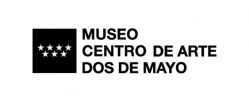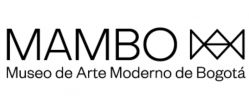Alexander Apóstol
gallery 9
Posture and Geometry in the Era of Tropical Autocracy
Since the 1990s, the work of Alexander Apóstol has revealed the different codes of gender, race and identity that accompany the ideologies of Latin America, incorporating the colorful, optimistic imaginary of modernization as well as the catalog of corporeal, sexualized fantasies of the continent’s nationalisms and populisms. His work oscillates between Venezuela’s dichotomous traditional visuals: on the one hand, the historicist, nativist vision developed by realist painters—patronized by the Marcos Pérez Jiménez dictatorship—which has been prolonged by the tragicomic staging of the current Bolivarian regime, and on the other, constructivism’s utopia of energetic, corporeal reinvention during the oil boom, from 1960 to 1970.
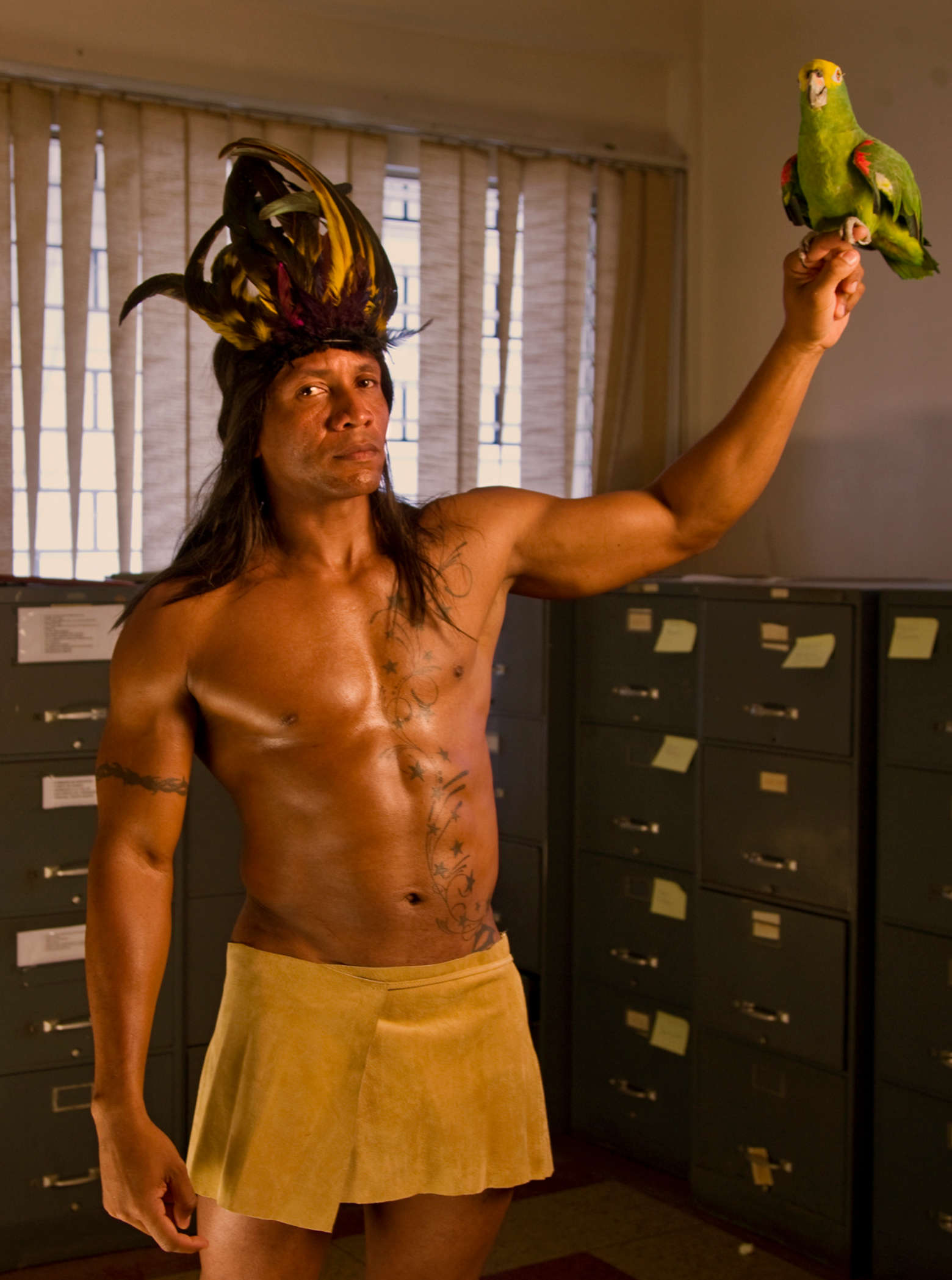
With the help of that skeptical exteriority provided by the homosexual perspective, Apóstol’s art reveals the coordinated manner in which artistic representation is an accomplice and auxiliary of the modern nation-state’s production of the imaginary, which depends on sexualization to give form to its fantasies. The oscillation between historical styles of regional art is also a succession of proposals for using desire and identity as secret mechanisms of domination.
While series such as Vanished Political Parties (2018) and Chromosaturated Collective Bargaining Agreement (2018) represent the way in which geometrism and op art coincided with a hypothesis on Venezuelan modernization, other pieces such as Rehearsing the National Posture (2010) and Regime: Dramatis Personae (2018) exhume the visuality of the body in nationalism and Bolivarian populism. The monumentality of many of Apóstol’s pieces from the past decade corresponds to his intention to deploy a critique of the aesthetics of the state. Both in these installations and videos as well as in his more domestic pieces, such as Ave. Libertador (2006), Apóstol refers to gender dissidence, trans people in particular, as a critical exteriority that dissolves the dominant aesthetic/political stereotypes. Gender and desire appear in Apóstol’s work as vectors of an indispensable dissidence in the face of the organization of collective social deception that defines all kinds of state projects.
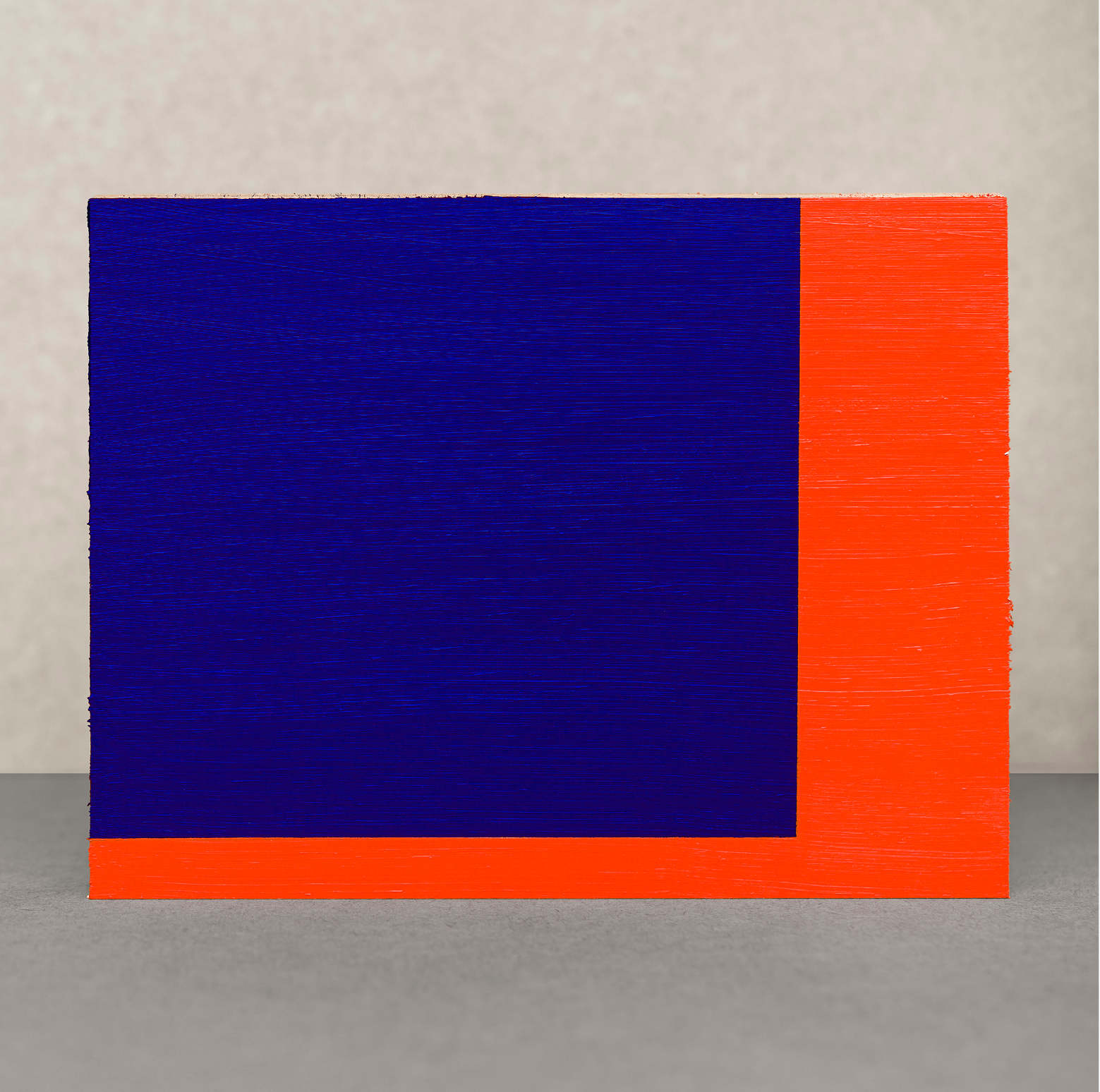
This MUAC exhibition seeks to stage the critical counterpoints that Apóstol has explored in his videos, photographic series and conceptual actions during the twenty-first century. The artist’s production is based on a distant gaze on both the Venezuelan political process as well as the new valorization of his country’s art as part of the global recuperation of Latin American modernism.
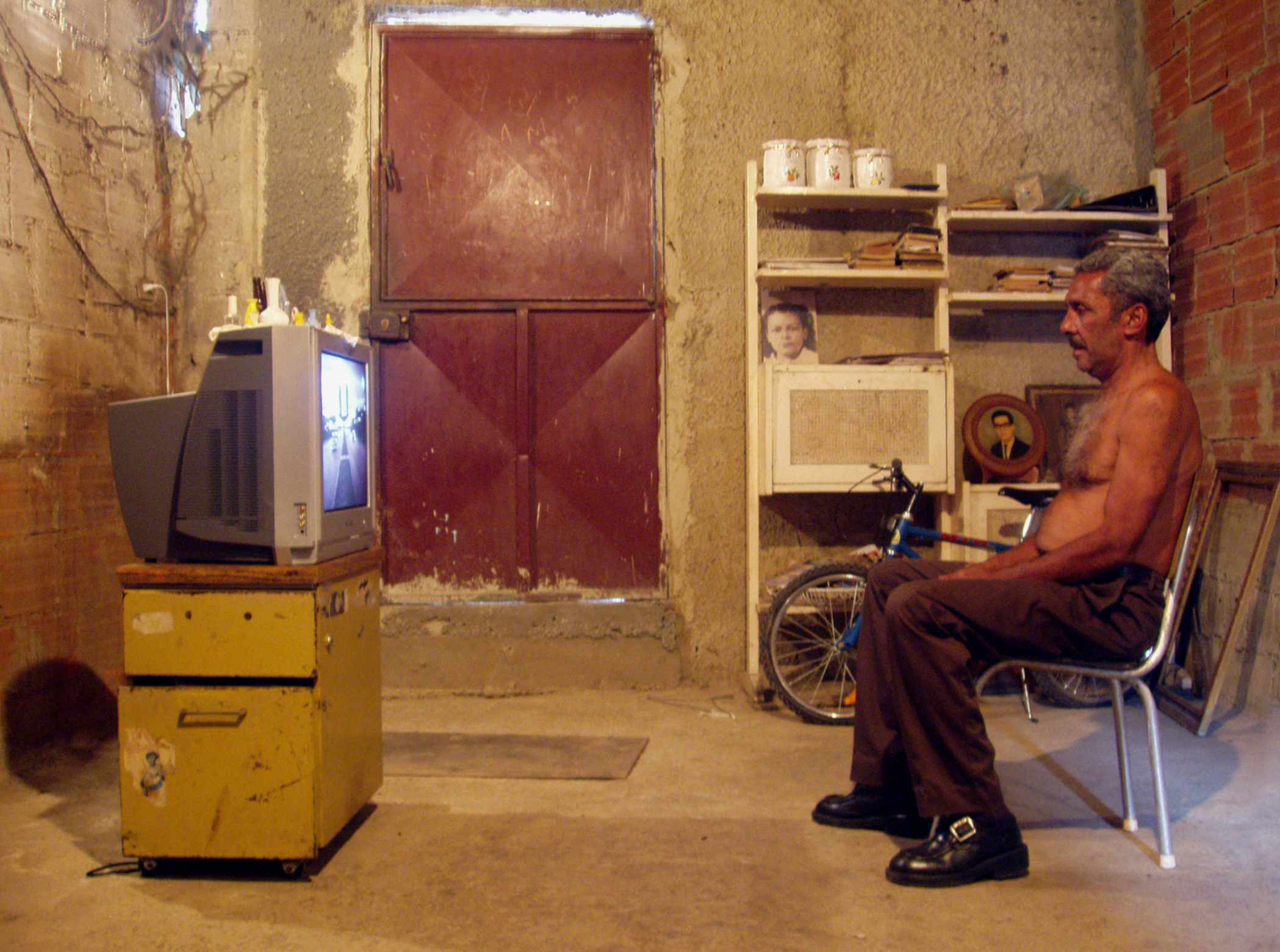
Artist: Alexander Apóstol (Barquisimeto, Venezuela, 1969)
Curatorship: Cuauhtémoc Medina
Curatorial Coordination: Alejandra Labastida
This is a travelling exhibition, organized in collaboration with the Museo Centro de Arte Dos de Mayo in Madrid, Fundación Proa in Buenos Aires, and the Museo de Arte Moderno de Bogotá. While this is not a retrospective with fixed content, as each site has introduced small variations in the selection of pieces, Posture and Geometry in the Era of Tropical Autocracy maintains an unwavering gaze on the intersection between the aestheticization of politics and the way in which the most varied artistic practices allow themselves to be absorbed, instrumentalized and mobilized by different stages of regional politics.
Publicación
Publication
Alexander Apóstol. Posture and Geometry in the Era of Tropical Autocracy
Authors : Cuauhtémoc Medina
Language : Spanish & English
Editor: MUAC, UNAM
Price: $220

